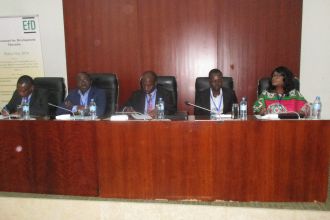Why (field) experiments on unethical behavior are important: Comparing stated and revealed behavior
Understanding unethical behavior is essential to many phenomena in the real world. We carry out a field experiment in a unique setting that varies the levels of reciprocity and guilt in an ethical decision. A survey more than one year before the field experiment allows us to compare at the individual level stated unethical behavior with revealed behavior in the same situation in the field. Our results indicate a strong discrepancy between stated and revealed behavior, regardless of the specific treatment in the field experiment.



